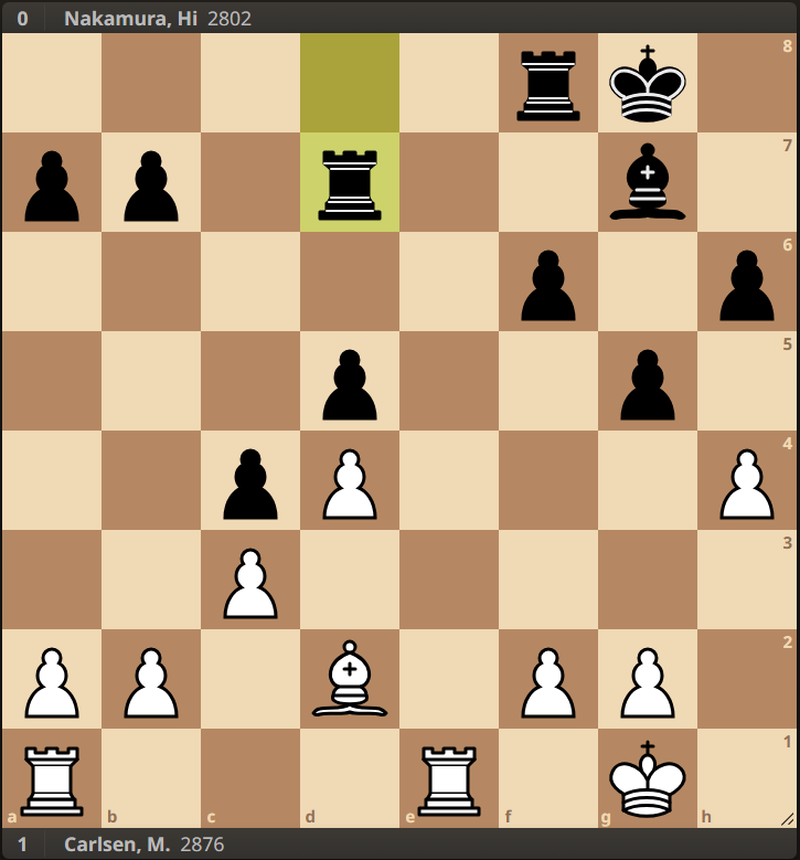
Beneath The Surface - Effective Practical Play
Discover the philosophy of finding 'practical' moves when the engine says there are many fine optionsOur Example
On the surface, there's not much going on in this quiet endgame, with White to play...

If you follow the common practice of relying solely on the engine's recommendations, you will likely get little to nothing of value. Our bishop might be slightly superior, but Black can hold with the best play.
The Key To Winning Chess Games
One advantage of recently taking online chess more seriously is that I have a fresh memory of winning chess games.
It's not about hitting a 99.9 CAPS accuracy like Giri did against Carlsen earlier today (that game still ended in a draw, by the way).
It's not primarily about the 'space disadvantage' concept, which I've been discussing in my recent game analyses.
Instead, it's about setting problems for our opponent.
Making more minor mistakes and putting pressure on them so that they make more significant mistakes.
The puzzle below will show you the 'how' of that from the chess point of view.
The Mindset Of The Practical Player
But as the self-appointed 'mental game' guy in the chess improvement space, I feel obligated to share the mindset behind this process.
Most people mess this up, whether by overcomplicating the process, simply being unable to handle the tension, or something else.
But let's focus on solutions.
Earlier today, I was reading an email from my old poker coach. I don't spend any time on poker, but I like reading his emails, because his focus on the 'practical', what actually matters for the average player, gives me ideas on how to help you better. (A small aside: Dr. Maxwell Maltz in 'Psycho-Cybernetics' pointed out that significant advancement in fields comes from outside that field.)
If you're anxious about your own play and putting a lot of pressure on yourself (fear, self-doubt, anxiety, lack of confidence), that takes away energy from asking your opponent questions in the game (not to mention answering the opponent's questions better).
So let's inject some logic and understand that most of your opponents have the same fear, self-doubt, anxiety or lack of confidence that you've felt before.
Using Psychology To Our Advantage
Let's play on those fears.
Put the pressure on them by giving them more decisions to make.
When they assume you will defend passively, change the nature of the game and counterattack.
Don't fall into their comfort zone - be resourceful, and keep an eye out for tricks.
If you know why you're screwing up these situations in your games, you're still ahead of most chess improvers out there, who have no idea why they're losing. (They may think they know, from the massive engine eval swings...if it was that easy, everyone would be a GM).
How Coaching Helps
It's a massive relief when you finally have a coach show you what's missing between where you are now and that next level in your play.
It's like going to the doctor and getting a simple remedy rather than going on Google and fretting about the 15 diseases (including 10 you have never heard of before) that match your symptoms...
Most people focus on symptoms.
The best coaches and students instead focus on 'buckets' that indicate the root cause of a problem and then ruthlessly focus on shifting that sub-skill into a strength through deliberate practice of the relevant thinking technique.
Frameworks get you started, but execution is where the most significant improvement happens.
It's Your Turn
Let's work on our execution, right now.
What would you play here as White?
Don't just give the first move - share how you think the play might continue from here in the comments thread.
More blog posts by Craze

Should I Play 1.d4?
Enjoy my recent video where I discuss some fun ideas with 1.d4!
From Stuck At 2200 For 2 Years, To FIDE Master In Just 3 Tournaments
My Journey To Finally Breaking The 2200s Plateau
Converting A Massive Advantage (and why it's so hard)
Enjoy explained examples from Round 1 of the 2024 Sharjah Masters!